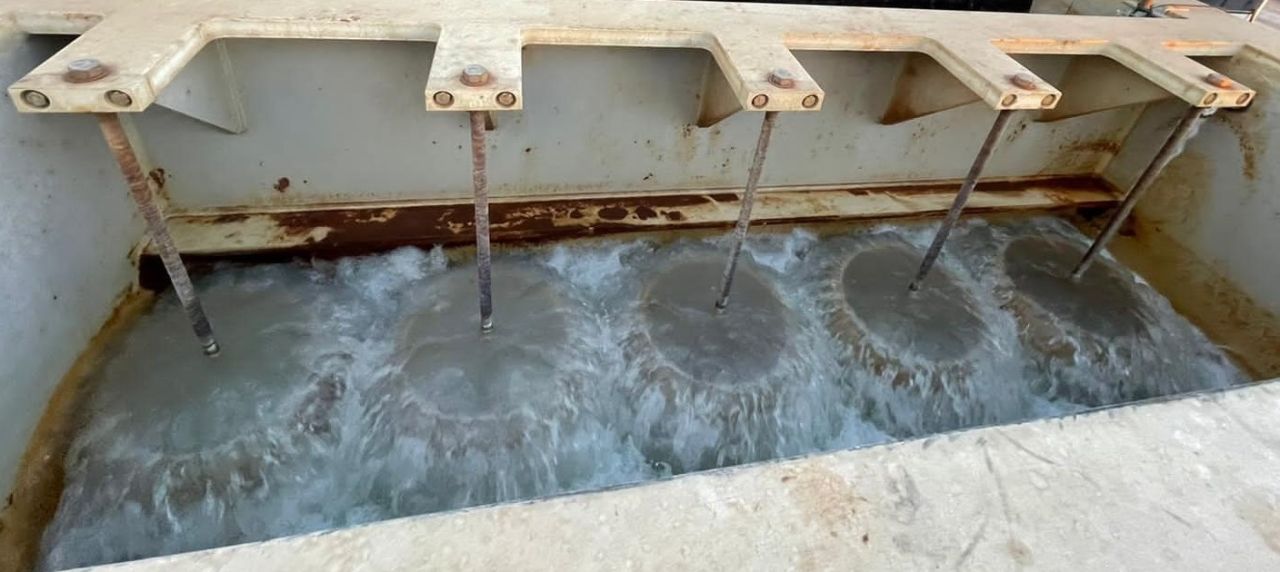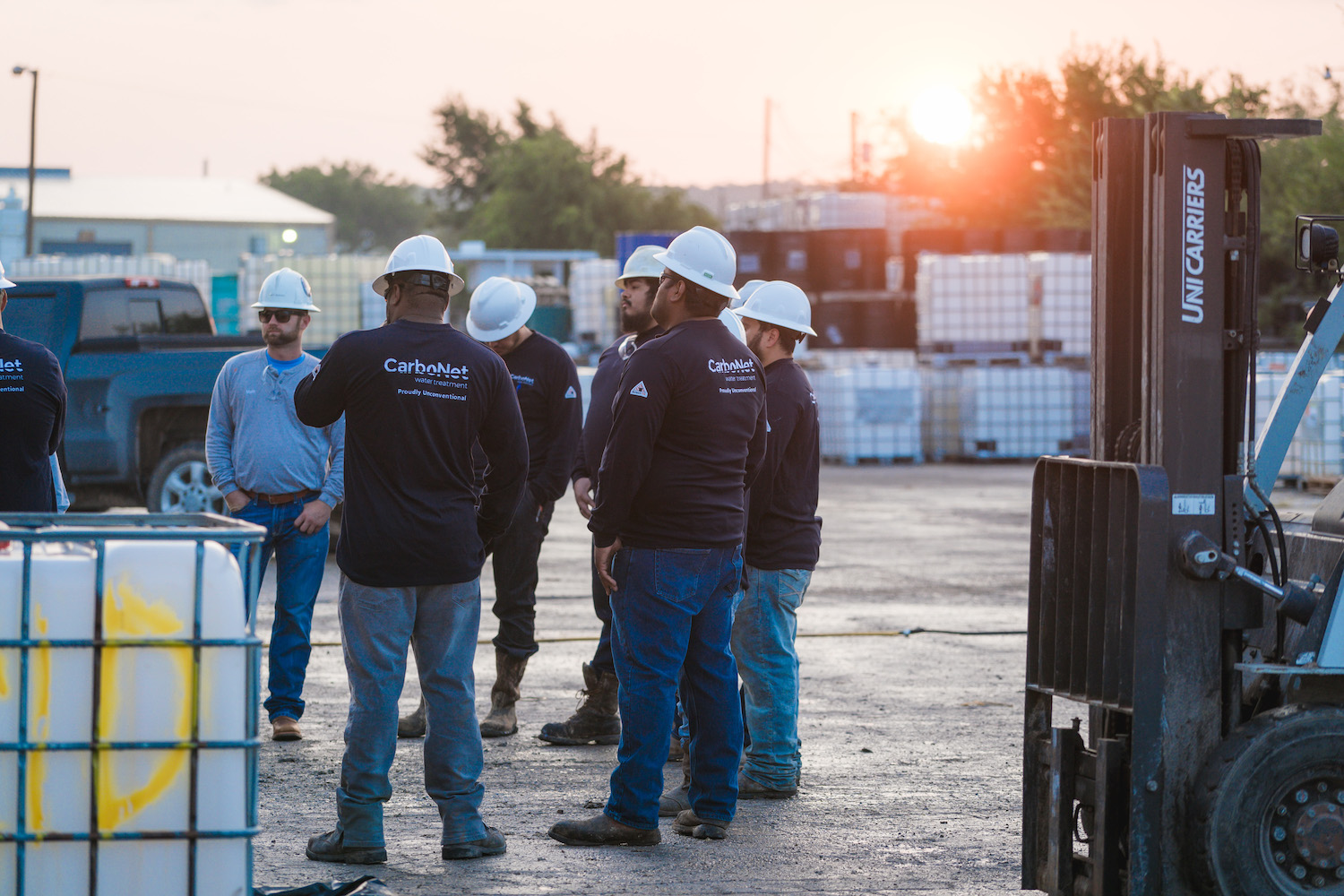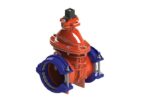EXCLUSIVE INTERVIEW: H2O Global News’ Natasha Posnett spoke with CarboNet inventor and founder, Michael Carlson, and CCO, Amielle Lake, about their unique technology and how it could make a real change in the economics of water recycling, helping to preserve freshwater and fight against the global water crisis.
There is no doubt that water conservation is becoming more important as water shortages spread across the world and the global demand on potable water resources continues to rise. As humans we are great at creating waste, but not so great at disposing of it. We are polluting our rivers, lakes and aquifers, adding harmful pressures to an already stressed finite resource. One effective and sustainable method to preserve our freshwater is to recycle the wastewater that we produce. CarboNet has developed a unique technology that works to remove contaminants, allowing wastewater to be recycled and reused to meet the growing demands of industry and agriculture.
The “happy accident”
There is a unique story behind how the CarbonNet technology was discovered and it highlights the passion they have for implementing change. It also matches their unconventional approach to wastewater treatment.
CarboNet inventor and founder, Michael Carlson, wished to make a difference to the world. He was struck by the terrible damage that offshore oil spills, and the resulting remediation efforts, were having on the oceans. In most cases, large oil spills are treated with dispersants, a type of detergent. However, this treatment approach causes far more damage than good. The dispersants are so effective at breaking down the oil that it cannot be collected and removed. The emulsified oil ends up sinking deeper into the water column and harming marine species. Carlson was inspired to find a solution.
After many long hours in the lab; experimenting with mixing surfactants and polymers typically used in the drug delivery arena, Carlson came across his “happy accident”. In contrast to the conventional method, Carlson’s new discovery was able to bind and agglomerate the oil and separate it for removal. The chemical solutions proved to be an efficient way of removing a variety of contaminants and allowed wastewater to be cleaned and then reused.
CarboNet CCO, Amielle Lake said: “We are proudly unconventional! That really represents CarboNet; who we are, the culture, but also the amazing customers we work with. Our technology is a totally different approach to conventional methods. We took drug delivery polymers and applied it to wastewater treatment. We are looking at it through a whole new lens and that’s what makes us unconventional.”

NanoNet Treatment
How does it work?
The science behind how CarboNet works is clever and interesting. The water treatment solution is based on the NanoNet platform. The NanoNet platform is a set of very small particles (ranging from 20 to several hundred nanometers in size) that can selectively bind materials in wastewater, including oils, greases, suspended and dissolved solids and metal ions. Each nanoparticle contains a proprietary blend of surfactants and specialty polymers. These components self-assemble in solution to form structures with a hydrophobic core that captures oily contaminants and a hydrophilic shell that binds metal ions, dissolved or suspended solids and microbes. The particles agglomerate to form a light, stable structure that is easily removed with standard equipment. Simply put, the NanoNet platform “net” out impurities that can then be extracted from the water.
Carlson explained: ”We end up selecting the nanonets that work the best, optimising them for the process and making it so that they improve the overall water treatment economics.”
The importance of recycling water
The benefits of recycling wastewater are numerous. It is an essential way of addressing the water crisis and the issues that are seen alongside it.
First and foremost, recycling water reduces the reliance on a stressed water resource. Recycled water creates a cost-effective supply and decreases the need to place further demands on freshwater sources. Recycling water has major environmental benefits; it reduces the impact on and protects sensitive ecosystems and allows natural aquifers to refill. It can also reduce transportation costs and lower the amount of harmful greenhouse gases released into the atmosphere. Furthermore, it lowers pollution risks. Wastewater that isn’t treated and recycled is often released into water bodies. Untreated wastewater does not naturally decompose, instead, it pollutes oceans, rivers and streams, deteriorating the quality of water and destroying valuable ecosystem. Finally, implementing water recycling into your business improves sustainability. You are able to meet your current needs without compromising the ability for future generations to meet their demands.
Carlson expanded: “We see it a lot in arid regions- as industries start to grow it can increase the cost of water withdrawal to agriculture by up to 10 times and farmers end up selling their water rights. By increasing the recycling and making it cheaper and more effective it really pulls the pressure off the freshwater resources. It is much further reaching than just the industry itself, pushing reclamation of produced water and reclamation of industrial waste water has a lot of off target benefits as well.”
What’s to come?
CarboNet is aiming to expand their business into other wastewater markets. They hope to spread the benefits of recycling water and help others to find a sustainable way to meet their water needs.
Lake also shared one final piece of exciting news: “We’re going to be releasing a formula to address boron. Boron is historically very hard to remove from wastewater, often it involves mechanical processes because it’s so small, and we’ve developed a chemistry that’s very effective at removing it. We’re excited to bring that to market.”
The benefits of CarboNet’s water treatment technology are far reaching. It is an innovative way of looking at the water crisis issue and addressing the need of preserving freshwater resources globally. Their efficient and low-cost technology is effectively reducing barriers for the widespread adoption of recycling water. By positively altering the economics of water treatment they are encouraging industry and agriculture to recycle and reuse their wastewater to meet their growing demand.
Lake concluded: “We’re really excited about the technology, the scale we think we can achieve and most importantly helping our customers to preserve fresh water. We are on track to treat almost 500 million barrels of produced water in the Permian this year. It’s an impact at scale.”







